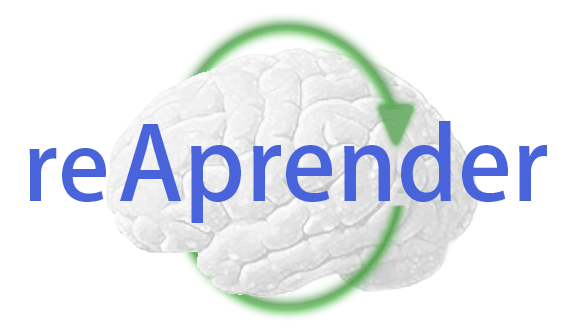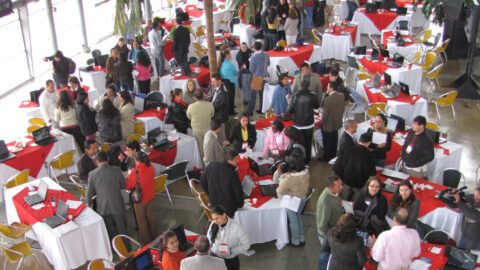CCK08
DISCLAIMER: Sorry about any English mistakes. I'm still learning...
So, I've been trying to read some of the things suggested for this first week of CCK08. At the same time, exploring some of the links associated to those readings and, in general, trying to create some kind of discipline (which I couldn't do for FOC08 ![]() ).
).
I read the things suggested in the wiki. So far, these are some of my thoughts...
I keep wondering what's the point of having a theory, if it has nothing to do with you (or the way you go around in the world). Especially, I think that I should be able to identify myself with any learning theory claiming to be a reasonable explanation of how humans learn (because, you see, I'm a human too..). What does this means? I means that I'm trying to read connectivism (and other learning theories) through that lens.
Talking about connections, Stephen says that they
"form naturally, through a process of association, and are not 'constructed' through some sort of intentional action".
I have to say that I'm having a hard time trying to remember a single time when I felt I was intentionally "constructing" or "building" something inside my head.
John Medina presents a clear case of how information in stored in the brain (according to brain science) in his book Brain Rules (Sorry, but I'll be mentioning Medina a lot. I just find his a very concise, useful and entertaining -in a good sense- book). No defined structure, no progressive storage. Just the creation and recreation of connections between neurons. So, the process seems to be closer to something growing out (or expanding?) than to something being built. This was part of an argument in a post by Christy Tucker.
No matter what subject I'm trying to learn, it's likely that, unconsciously, I'll try to relate (tie) the words involved to other contexts of my life. Unconsciously, I tap into the existing neural networks in my brain, and try to adapt them to recognize a new pattern of information.
So, to me, this looks more like growing (in unexpected and undirected ways) rather than building. The notion of building brings to my mind bricks disposed in an ordered and structured way (I don’t think that means necessarily linear, though).
Now, what about those insight times (Aha! moments), when we say "Of course, 'this' is just like 'that'!!"? Is it free association? I find myself every now and then finding out, unconsciously, unexpected connections between ideas (Aha! moments). I just wonder if those moments can be explained by constructivism (I can't see that right now) or any other theory. However, they are natural occurrences when something is 'growing', and I have no control about it. An Aha! moment is just the unexpected (and automatic) connection between two sets of neurons which were not connected before....
Stephen talks also about what it is to know something:
To 'know that P' is (approximately) to 'have a certain set of neural connections'.
To 'know that P' is, therefore, to be in a certain physical state - but, moreover, one that is unique to you.
This is very much what Medina says, too. You have sets of neural connections that respond (are able to recognize) to different sensory input (he talks about the "Jennifer Aniston neuron" that many of us have). In this sense, knowing "P" is recognizing "P", which is possible only if there is a set of neural connections already in place to react to "P". We can't recognize what we don't "know", because we don't have the neural connections in place. But we do try and find the most similar set of neural connections, in order to create an association for the thing we are trying to recognize.
The physical state associated to "P" is, then, absolutely unique, because my neural connections are unique to me. This means that the probability of two people having the same set of neural connections is very low, because of their previous sets. Clearly, we don't really have control over this process. If we did, I think we could guarantee standard levels of comprehension in any classroom around the world. The uniqueness of the neural connections means, also, that can be almost impossible to get two people to understand something in exactly the same way. So much for standardized curriculum.
While reading Stephen's and George's writings, something kept coming to my mind. An older story. Do you remember the Ptolemaic system? Do you remember how reasonably accurate it could be? Do you remember how complex it was?
The Ptolemaic system had to be quite complex because it placed the Earth at the center. Put the Sun in the center (Copernicus), and it turns out to be a "simple case". Well, not exactly simple, but it's much easier to grasp than the other one.
When I go back and read so many things about so many learning theories, I can't help to wonder if we are trying to put something in the center, when it doesn't belong there. I agree with Stephen when he reminds us that learning is something that a baby and even many animals can do, and yet it defies (so far) a simple explanation. What are we putting at the center of our universe (power and control, maybe?)? What should really be at the center? I still don't know.
Downes then talks about "Papert's advice on 'learning to learn'", which brings me back to Medina, and my own reflections. Medina proposes that we are all natural explorers. Trying to figure out how the world works is a human feature. Learning is a human feature. It this is so, how come that I have to learn how to learn?
Many of the teachers I had in college (in Colombia, maybe it's different elsewhere) were really interested in verifying if I had memorized the things I had read. I had to repeat what -place_author's_name_here- said, and that was it. I remember one of them, which really made us think. The written essays had to do with our thoughts, based on the things we had read. It was an unusual experience.
In a way, I'd say I was learning to learn there. Curiously, it seems to me that many master and doctoral programs (not all of them, sadly) try and train the student to think for herself, and honing her learning skills (with a lot of autonomy involved). Quite different from college. Maybe we forget how to learn as we grow up?
Maybe "learning to learn" has to do, in fact, with "un-training" ourselves. Is our basic educational system helping us forget how to learn (by making us 'good students')? Maybe the advanced degrees are intended to "un-train" us, in a way (However, I can say for experience that having a master/doctoral degree doesn't make you, necessarily, a critical person)...
What if we had to "teach" a baby how to "learn" before she could learn how to crawl or walk? Does that make any sense at all?
In the end, my sensation about the readings is that connectivism looks like a very good excuse to discuss subjects even more fundamental than those explained by a learning theory. It has to do with the purpose of education. It has to do with the rationale behind it.
That's why I see with some curiosity when this conversation is dismissed because "we don't need another learning theory". This would mean that we do have now the final explanation for how humans learn (and I really don't think that's the case). And I'm not sure that constructivism (or constructionism, for that case), represents that explanation.
Maybe connectivism still has to evolve in a lot of ways. What theory doesn't? Just take a look at history, and read what Kuhn has to say about that... Maybe connectivism doesn't seem to have an immediate application in the classroom. How could it, when it addresses issues of purpose of the system in which that classroom is inserted? You can't think about the classroom as a separate entity... What about the 'non-universals'? Maybe they need to be taught but, do we have the magic recipe to learn them? Maybe connectivism ideas could help to figure out new ways to help children discover those 'non-universals'... If this is a possibility, should we dismiss the discussion?
What if what we need is a 'meta-theory' of learning, which articulates all the different sides of the discussion?
I think I need to read some more and think about this a lot. So far, very interesting connections seem to be appearing inside my head. ![]()
![]()
![]()







